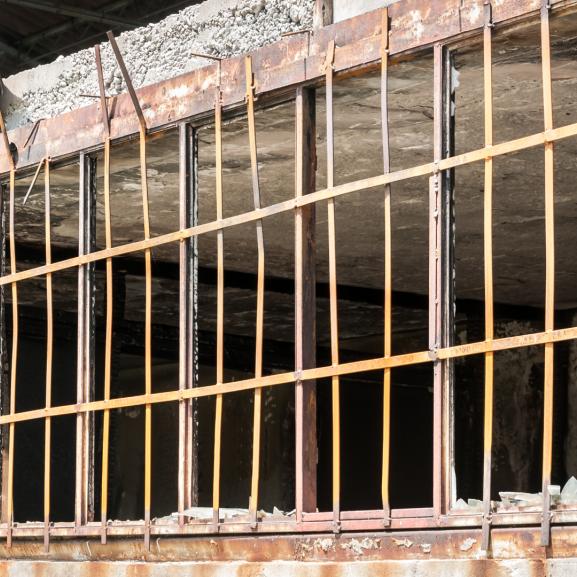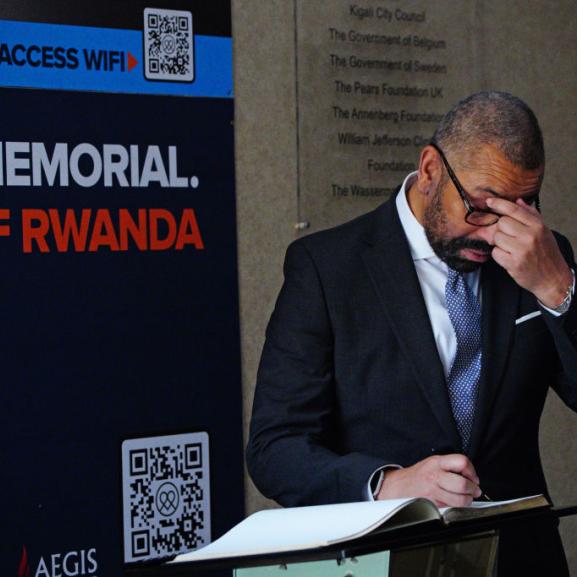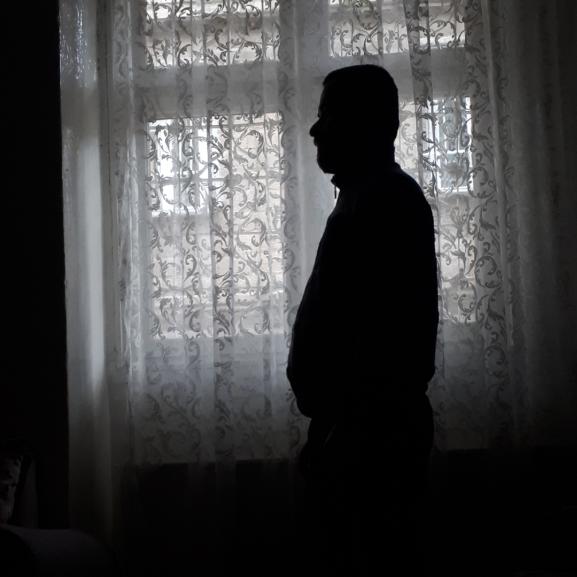Survivors contribute to UN report on migration related torture
Shameem Sadiq-Tang explains how torture survivors actively contributed to the recommendations of the UN Special Rapporteur on Torture.
In January, we hosted the UN Special Rapporteur on Torture, Professor Nils Melzer, at our Glasgow centre where he met ten current clients and heard about their experiences of migration. In a follow-up meeting we helped those survivors to develop some recommendations to inform his report on ‘Migration related torture and ill-treatment’ which has recently been presented at the Human Rights Council in Geneva.
Professor Melzer's report highlights the increasingly restrictive and obstructive laws, policies and practice of States that have pushed people towards unsafe routes out of their countries and into highly vulnerable and exploitative situations.
It also criticises the increasingly hostile actions by States which are designed to create an escalating cycle of repression and deterrence, to discourage new arrivals. He particularly mentions measures including detention, separation of family members, poor reception conditions and medical care.
None of this is news to us at Freedom from Torture where we see the day-to-day reality of just how cruel the world can be and how difficult the UK’s own policy of creating a “hostile environment” makes life for asylum applicants. And this certainly is not news to any of the survivors of torture who spoke to the Special Rapporteur on Torture, with one person movingly saying that "being an asylum seeker is like living in an open jail."
I was separated from my family at the border. The smugglers separated men, women and children. My son is ten now and there is not a day goes by when I don’t think of my wife and son but I don’t know what’s happened to them.
Others described the difficulty of getting help with health issues: "my main concern was getting as far away from torture as possible. I needed help but didn’t recognise it until I felt safe. Help along the way would have made health issues now easier to manage."
Another talked about the difficulty of family separation: "I was separated from my family at the border. The smugglers separated men, women and children. My son is ten now and there is not a day goes by when I don’t think of my wife and son but I don’t know what’s happened to them."
Survivor recommendations included:
- Safe and legal pathways to ensure the safety of vulnerable people, including survivors of torture, so that they are not forced to make dangerous journeys where they are at risk of further torture and ill-treatment. However other people who make this journey outside of this pathway must not be subjected to less favourable treatment in the asylum process;
- Access to pop-up specialist rehabilitation services should be available along the migration route to enable survivors of torture to respond to their most immediate physical and mental health needs whilst also reflecting the temporary reality that they are unable to stay in one place for too long;
- Families separated during migration journeys must be supported to find each other and be reunited for the best interest of the family unit including children. Family reunification in the host state must also be available to enable people to rebuild their lives, integrate and contribute to the host society;
- There must be alternatives to detention both during the journey and by the host state with signs of torture identified early on so that already highly vulnerable people including survivor of torture are not subjected to further torture;
- Access to accurate, reliable and objective interpreters is imperative at any service accessed along the journey and especially at the host state at the first interaction with any asylum process. Without this, vulnerable people including survivors of torture are unable to understand processes, systems or have their experiences recorded in an accurate way;
- Reception conditions in the host state must be humane with efforts made by asylum teams and support services to treat with respect and dignity rather than the current increasing hostile climate seen more recently. Asylum applicants should be given the best opportunities possible to integrate in society including by reducing the lengthy asylum process, being housed in clean and good quality accommodation to meet any specialist needs, and allowing access to education and employment;
- Negative rhetoric and misinformation about asylum applicants and refugees including torture survivors must be meaningfully challenged so that the current hostile climate and increasing xenophobia ends;
- States must invest in ethical and human rights based foreign policies taking more of a reflective approach about how their actions impact local populations and created problems witnessed in the recent refugee crisis;
- The United Nations must act fairly and treat debates about, and action towards, all States equally, and not favour powerful States over other less powerful States; and
- Those with lived experience of migration journeys including survivors of torture must be included in all debates and discussions in a meaningful way and on an equal footing so that lasting solutions can be developed.
So clearly more work needs to be done to turn these recommendations and those made by Professor Melzer into the policies and practice of States, but reports such as this one are crucial in calling out governments, including our own on their harmful policies.
In addition, connecting influential players and decision makers with survivors of torture as change makers is an important step and key to ensuring that any recommendations benefit those who need their protection the most. That is what survivor activism is all about.







